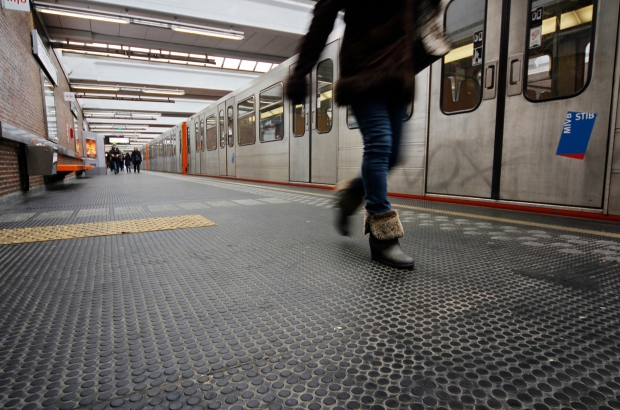- Daily & Weekly newsletters
- Buy & download The Bulletin
- Comment on our articles
Drugs violence in Brussels on the rise, neighbourhood associations warn
While drug-related shootings in Brussels have grabbed headlines in recent days, neighbourhood associations warn that the problem is nothing new.
One hot spot in particular is Merode metro station, where locals say transport users are at danger due to an increasing vagrant population and open drug use.
Local authorities have received numerous complaints regarding the situation and decided to issue a decree limiting the places where users can be in the station to two areas that will be regularly cleaned.
Brussels public transport operator Stib and staff from Securail - as Merode is also an SNCB rail station - will be responsible for enforcing order. Syringe boxes and rubbish bins will be provided to prevent contamination.
“We're not chasing drug addicts away,” said Etterbeek mayor Vincent de Wolf (MR).
“We don't put them in hidden places. They are always in full view of passers-by, but we have moved them away from places where users are paying or going through ticket gates.”
But associations working with people suffering from drug addiction consider the measure to be a mere announcement.
“If we really want to solve the problem, there are other avenues to explore,” said Christopher Collin, director of ASBL Dune. “At the moment, we're taking small steps to reassure the electorate, but that doesn't solve anything.”
Etterbeek's municipal decree is in force for 30 days, after which it will be evaluated and extended if necessary.
Abuse recovery organisations are not the only ones sounding the alarm. Some 40 associations and neighbourhood committees in the Brussels-Capital region have written an open letter calling for an "immediate" solution to the problem of drug-related violence in the capital.
Six months after the publication of an initial letter denouncing the "growing insecurity" in Brussels, the neighbourhood associations point out that the situation has worsened, writing: "Cases of extreme gun violence, such as we have seen in Saint-Gilles, have become a kind of new 'normal' in the Brussels region."
According to the neighbourhood committees, politicians are blaming each other without coming up with a common approach.
“For us, ordinary citizens, this procrastination on the part of politicians based on the principle: 'it's not me, it's someone else' is discouraging and shows a real disconnect with the aspirations of the population,” the associations write.
They criticised the Brussels government for the "softness" and "resignation" with which it seems to be reacting to an "intolerable" rise in violence.
In the meantime, the Brussels region aims to halt the flare-up of drug violence in ‘hotspots’ by putting more officers in affected areas and promoting better cooperation between police zones.
“These are hotspots, specific neighbourhoods that need a targeted approach,” said Sophie Lavaux, director of safe.brussels.
Brussels minister-president Rudi Vervoort echoed the intent to tackle the issue in a more deliberate manner.
"But I am under no illusions: with more officers on the streets we are not going to put a stop to drug crime," Vervoort said.
"There are many facets linked to it, not least the international dimension which we have little control over at the city level.
"But there is also the migration crisis in our country and the increasing circulation of firearms since the war in Ukraine erupted – external issues that we, as a Brussels government, find difficult to control.
"So I am the last one to say that we are going to eradicate drug crime here in Brussels."

















